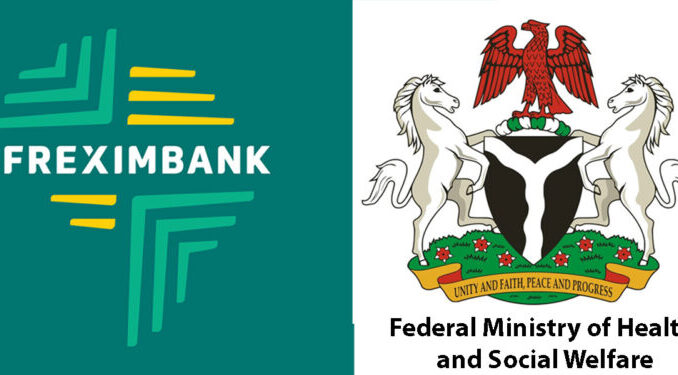
The African Export-Import Bank (Afreximbank) has announced plans to launch its currency trading platform in a bid to bridge the Intra-African trade financing gap estimated at over $50 billion annually.

The President and Chairman of Board of Directors, Afreximbank, Prof. Benedict Oramah disclosed this at the 8th Goddy Jidenma Foundation (GJF) biennial public lecture tagged, “The trade route to poverty reduction in Africa in a de-globalising world.”
He said plans are ongoing to launch the platform in May, 2024, stating the urgent need to aggressively fill the intra-African trade gap.
Afreximbank, he said, operates an intra-African Trade Division that has disbursed over $40 billion since 2016, with an amount of about $11 billion outstanding, equivalent to about 28 per cent of Afreximbank’s loan portfolio.
According to him, “The Currency Trading Platform will also be launched under the auspices of Pan-African payment and settlement system (PAPSS). It is now becoming possible for a small farmer in Malawi to use his cell phone to purchase a Nollywood streaming movie and pay in the Malawian Kwacha while the seller in Nigeria receives Naira. We are nearing the stage when an Egyptian can buy shares on the Nigerian Stock Exchange paying in Egyptian Pounds.”
The Afreximbank boss said access to trade and investment information is key, “as lack of access is perhaps the greatest impediment to intra-regional trade.”
To address this challenge, He said Afreximbank offers an Artificial Intelligence-enabled Trade Information Platform under the brand name Tradar Intelligence.
“It is for the same reason that Afreximbank collaborates with the African Union Commission (AUC), the AfCFTA Secretariat, and others to host a biennial intra-African trade Fair. The three editions so far held since 2018 attracted an aggregate of over 70,000 visitors, 4,000 exhibitors and about 120 billion US dollars in deals,” he said.
On the status of implementation, he said the African Continental Free Trade Agreement (AfCFTA) Secretariat is operational in Accra, Ghana where 54 countries have signed the Agreement, and 47 have ratified it.
“While much progress has been made, a lot is still required to ensure that trading under the Agreement is boosted. For example, to avoid its falling victim to the discontent that negatively impacted globalisation, the AfCFTA must be complimented by the Free movement of Africans across the continent, with the right to work. Although 32 countries have signed the Treaty, only four countries ratified it, falling short of the required 15 ratifications for the Free Movement Protocol to enter into force. We must continue to make aggressive push for countries to ratify the Treaty so as to get the requisite ratifications for it to come into force,” he urged.
Also speaking, the Founder and Executive Secretary, GJF, Dr. Ije Jidenma, said there is a perfect congruence between Prof. Oramah’s Pan African vision and the GJF quest to be part of the national think tank and solution to the nation’s developmental challenges.
“Even though the developmental turf is tough, as a seasoned public intellectual and one with a great sense of history, Prof Oramah is one person that is not ready to give up hope about Africa’s renaissance,” she said.

On his part, the Chairman, Board of Trustees GJF, Pat Utomi, said the world has gone through rounds of globalisation, recession and war, advising that the challenge is for Nigeria to think outside the box on ways it cpuld prosper in this new swing in Africa

Be the first to comment